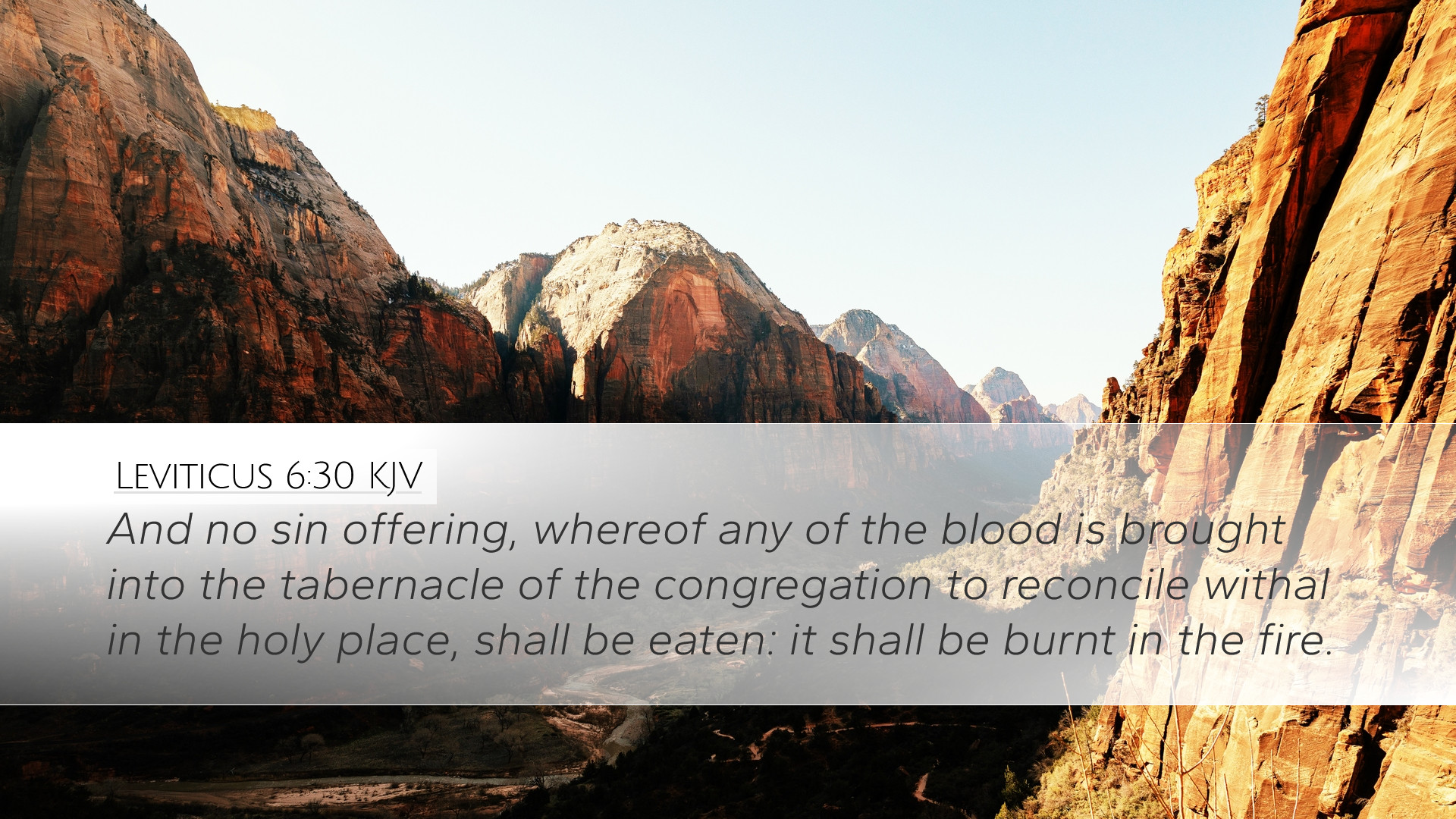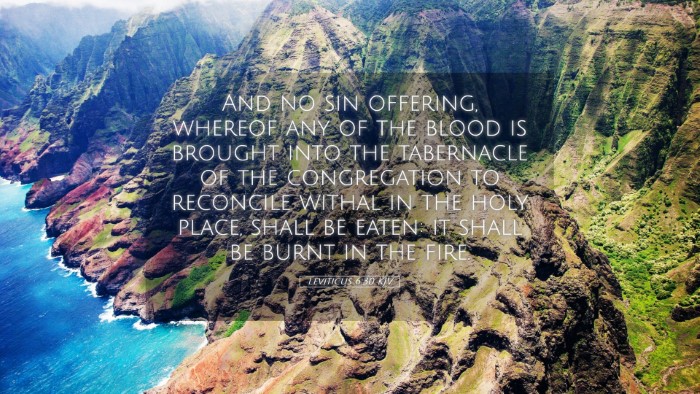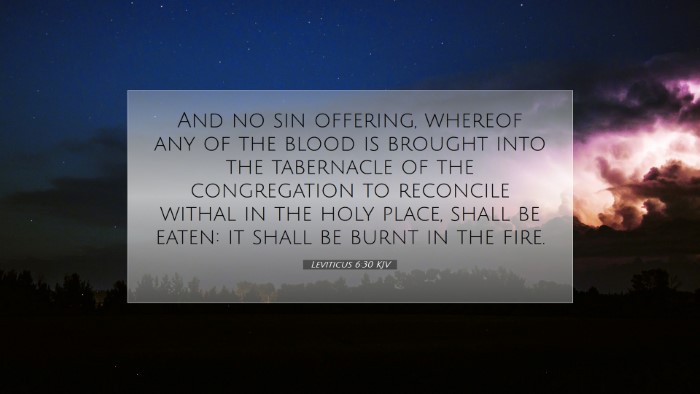Commentary on Leviticus 6:30
Verse Reference: Leviticus 6:30 (KJV) - "And no sin offering, whereof any of the blood is brought into the tabernacle of the congregation to reconcile with all, shall be eaten: it shall be burnt in the fire."
Introduction
This verse concludes a section on the offerings that were prescribed for the Israelites, emphasizing the holiness and significance of the sin offering, particularly when the blood was brought into the tabernacle. The act of eating the offerings is addressed, stating that sin offerings, once the blood is presented before God, should not be eaten.
Historical Context
The instructions in Leviticus were given to the Israelites after their exodus from Egypt, providing guidelines for their worship and community life. The sacrificial system was crucial for atonement and maintaining a right relationship with God. The sin offering specifically dealt with unintentional sins, reinforcing the need for ritual purity and acknowledgment of sin within the community.
Theological Insights
Significance of Blood: Blood was seen as essential for atonement; it was believed that life was in the blood (Leviticus 17:11). The act of offering blood in the tabernacle signified the transfer of sin and guilt from the offerer to the offering, thereby establishing a symbolic death for sin.
Holiness of the Offerings: As Matthew Henry states, the prohibition against eating the sin offering where blood was brought into the tabernacle reflects God's holiness and the seriousness of sin. The offerings were sacred, and their disposal in fire symbolized complete and utter dedication to God. God did not desire His people to take lightly the atonement for sin.
- Albert Barnes notes that the refusal to consume the sin offering serves as a potent reminder of the seriousness and gravity of sin. It is a public acknowledgment that sin requires not human participation but divine intervention for reconciliation.
- Adam Clarke emphasizes that the burning of the sin offerings outside the camp shows a deliberate separation from the community — reflecting how sin separates humanity from God.
Cultural Implications
In the ancient Near Eastern context, eating meat from sacrificed animals often signified fellowship and acceptance. Therefore, the directive that sin offerings are not to be consumed but burned demonstrates a stark reality: sin is something that cannot be embraced or normalized among God's people.
Conclusion
Leviticus 6:30 encapsulates fundamental themes about sin, atonement, and divine holiness. It challenges pastors and theologians alike to consider how these ancient practices inform contemporary understandings of sin and forgiveness in the life of believers. As we approach God, we are reminded of the seriousness of sin and the necessity of atonement through Christ, the ultimate sin offering. Such reflections deepen our appreciation for the sacrificial system, unveiling its significance in foreshadowing the redemptive work of Christ.
Applications for Modern Believers
In contemporary faith communities, the lessons from Leviticus 6:30 can encourage believers to:
- Recognize the seriousness of sin: Just as ancient Israel had specific protocols for addressing sin, modern Christians should take sin seriously and understand it in the context of their relationship with God.
- Comprehend the significance of Christ's sacrifice: The concept of the sin offering prepares the way for understanding Jesus as the Lamb of God, whose blood offers perfect atonement.
- Embrace repentance: Genuine repentance involves acknowledging our sins before God, understanding their weight, and turning towards His redemptive work.


